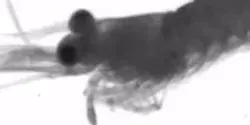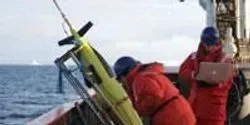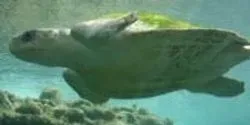ocean sciences

University of Delaware researcher Jonathan Cohen is using a new technology to analyze and quantify zooplankton in the Delaware Bay.

University of Adelaide-led research will help pinpoint the impact of waves on sea ice, which is vulnerable to climate change, particularly in the Arctic where it is rapidly retreating.

After the worst coral bleaching event ever recorded in Hawai'i, University of Hawai'i scientists and researchers with the Hawai'i Institute of Marine Biology (HIMB) are diligently monitoring and testing affected coral reefs in Kane'ohe Bay, along with other areas on O'ahu, and parts of the Northwestern Hawaiian islands.

The rapidly melting ice sheets on the coast of West Antarctica are a potential major contributor to rising ocean levels worldwide. Although warm water near the coast is thought to be the main factor causing the ice to melt, the process by which this water ends up near the cold continent is not well understood.

The University of Delaware’s Mark Moline knew that his grandfather, O. Karl Olander, was a Navy chaplain in the Pacific during World War II. But it wasn’t until his mother shared his grandfather’s journal and scrapbook that Moline realized his grandfather had been on the USS Princeton, one of the aircraft carriers that attacked Palau in March 1944.

Alcohol consumption isn’t the only thing a breath analysis can reveal. Scientists have been studying its possible use for diagnosing a wide range of conditions in humans — and now in the beloved bottlenose dolphin. In a report in the American Chemical Society (ACS) journal Analytical Chemistry, one team describes a new instrument that can analyze the metabolites in breath from dolphins, which have been dying in alarming numbers along the Atlantic coast this year.

Using satellite observations and a large suite of climate models, Lawrence Livermore scientists have found that long-term ocean warming in the upper 700 meters of Southern Hemisphere oceans has likely been underestimated.











